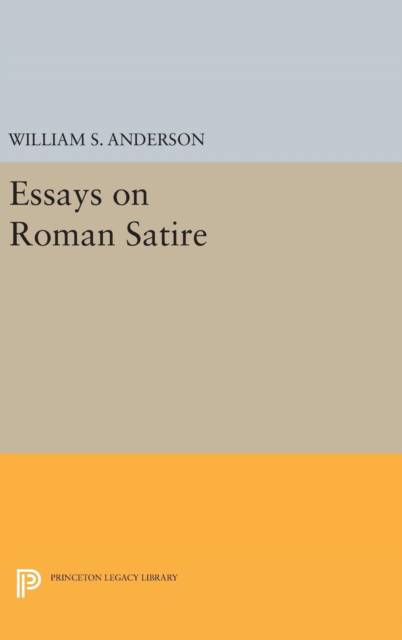
- Afhalen na 1 uur in een winkel met voorraad
- Gratis thuislevering in België vanaf € 30
- Ruim aanbod met 7 miljoen producten
- Afhalen na 1 uur in een winkel met voorraad
- Gratis thuislevering in België vanaf € 30
- Ruim aanbod met 7 miljoen producten
Omschrijving
The fifteen essays collected here argue that Roman verse satire should be viewed primarily as an art form, rather than as a social document or a direct expression of social protest. Originally published between 1956 and 1974, they constitute an impressive attempt to free Roman satire from misinterpretations that arose during the romantic era and that continue to plague scholars in the field. The author rejects the proposition that Juvenal and other satirists expressed spontaneous, unadorned anger and that the critic's best approach is the study of the historical, social, economic and personal circumstances that led to their statement of that anger. This work develops his thesis that Roman satire was designed as a literary form and that the proper stance of the critic is to elucidate its art. Focusing on the dramatic character of the first-person speaker in the satires of Horace, Persius, and Juvenal, the author shows both how the speaker's role was shaped to suit the purposes of the individual poems and how that role changed over successive collections of satires. Several essays also discuss the ways in which the satirists employed metaphors and similes and used contemporary ethical and rhetorical themes.
Originally published in 1982. The Princeton Legacy Library uses the latest print-on-demand technology to again make available previously out-of-print books from the distinguished backlist of Princeton University Press. These editions preserve the original texts of these important books while presenting them in durable paperback and hardcover editions. The goal of the Princeton Legacy Library is to vastly increase access to the rich scholarly heritage found in the thousands of books published by Princeton University Press since its founding in 1905.Specificaties
Betrokkenen
- Auteur(s):
- Uitgeverij:
Inhoud
- Aantal bladzijden:
- 514
- Taal:
- Engels
- Reeks:
Eigenschappen
- Productcode (EAN):
- 9780691642161
- Verschijningsdatum:
- 19/04/2016
- Uitvoering:
- Hardcover
- Formaat:
- Genaaid
- Afmetingen:
- 156 mm x 234 mm
- Gewicht:
- 893 g

Alleen bij Standaard Boekhandel
Beoordelingen
We publiceren alleen reviews die voldoen aan de voorwaarden voor reviews. Bekijk onze voorwaarden voor reviews.











